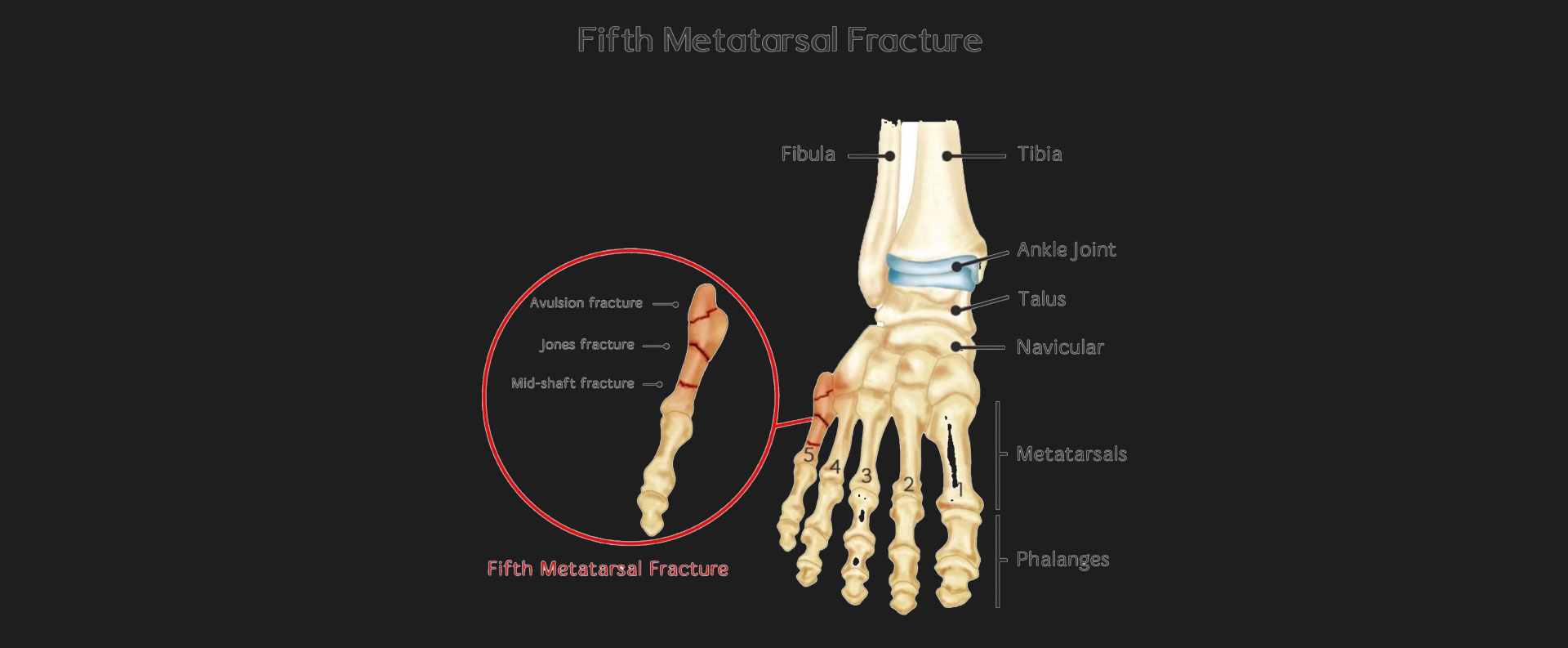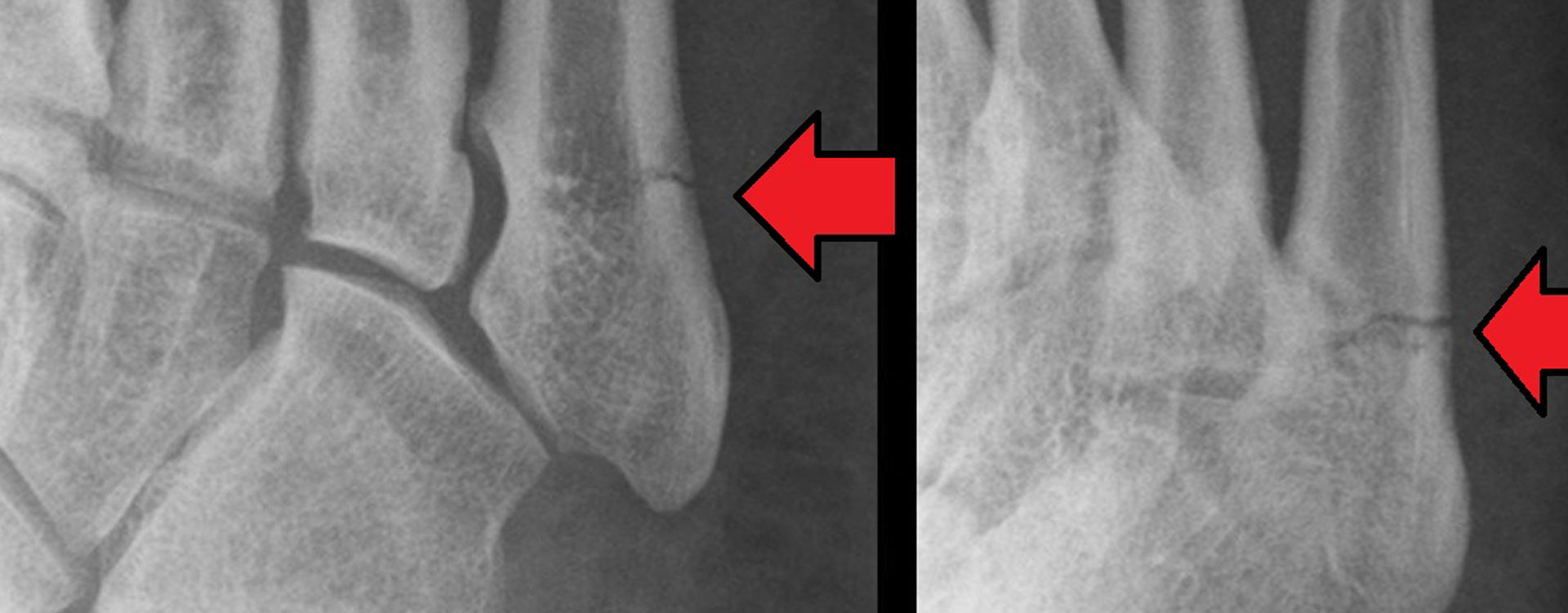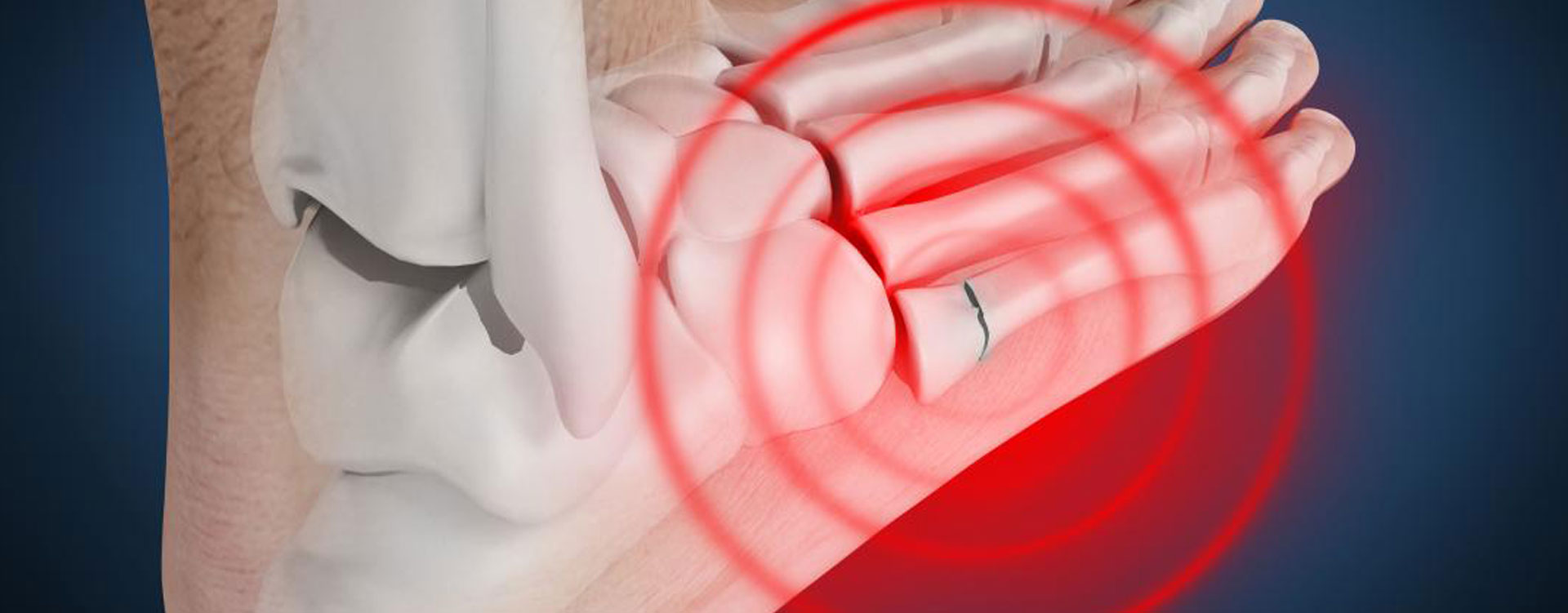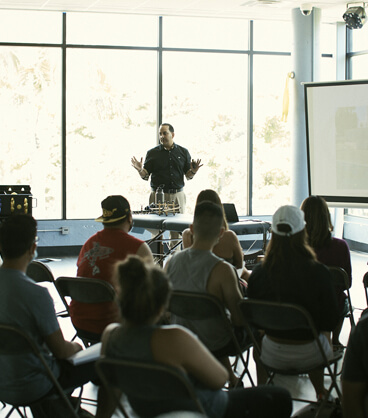5TH METATARSAL FRACTURE
FOOT
5TH METATARSAL FRACTURE
a.k.a. JONES FRACTURE / DANCERS FRACTURE / MARCH FRACTURE

Metatarsal fractures are the most common injuries to the foot. These long, thin bones run from the toes to the ankle. Each foot has five metatarsal bones, one for each toe, and each bone has three different parts.
The metatarsal bones can be partially or completely fractured, and fractures to the 5th metatarsal make up for over 50% of all metatarsal fractures. The 5th metatarsal runs from the pinky toe to the ankle, on the outer edge of the foot.
There are several different types of fractures that can occur to the 5th metatarsal. The most common is called an Avulsion fracture. This fracture happens at the very bottom of the metatarsal, right where it connects to the ankle bone. “Avulsed” means to tear away, which is exactly what happens in this injury. A part of the bone pulls away from a supporting tendon, which is frequently the result of the ankle forcibly rolling into an inverted position.
Another, less common fracture that occurs in the 5th metatarsal is a “Jones fracture”. This type of injury is often due to repetitive stress and overuse, but can also happen suddenly in an acute break. A Jones fracture occurs to a very specific area of the foot, right between the base and the middle part of the 5th metatarsal. This section of the foot receives a limited supply of blood, which can make it more difficult for it to heal.

We sometimes see a Jones fracture to the 5th metatarsal in athletes like runners, gymnasts, and dancers. All of these activities make a person more susceptible to a Jones fracture because they put repetitive loading onto the feet. A fracture to the 5th metatarsal has even earned the nickname “Dancer’s Fracture” because it’s so common to see in this group. Also, is called a “March Fracture” because it is seen so heavily in the military when they are marching.
Injuries like the Avulsion fracture and a head or neck fracture at the top of the 5th metatarsal are easier to heel than the Jones fracture, which may require surgery. When we address any foot injury at MOTUS, we take into consideration the patient’s level of activity, and consider the long-term outcome. We aim to provide a treatment plan that will allow patients to return to their sport safely.
When you receive treatment for a 5th metatarsal fracture at MOTUS, your physical therapist will work with your whole body, not just your foot. This will help root out the main cause of the injury and possibly help understand why more pressure was placed on this area of the foot. Our treatment methods use the whole body as a unit, instead of only focusing on the site of the injury, so that we can help you heal completely and properly.

3 Ways to Level Up Your Rehab and Injury Prevention With Us





